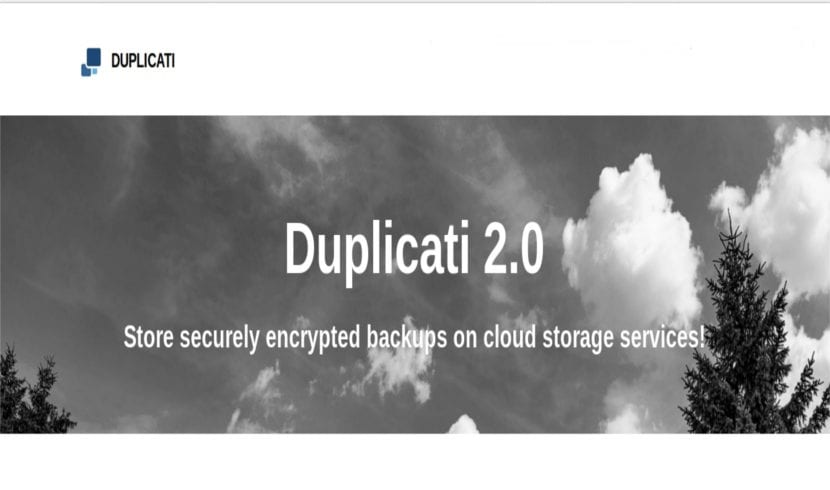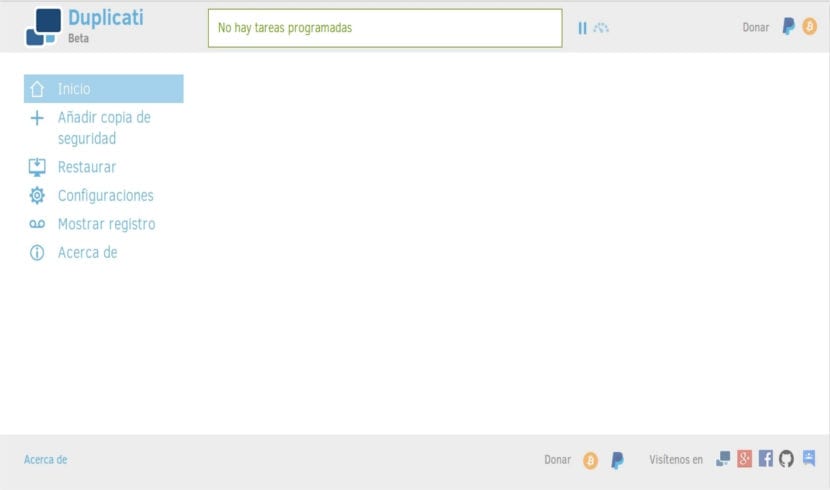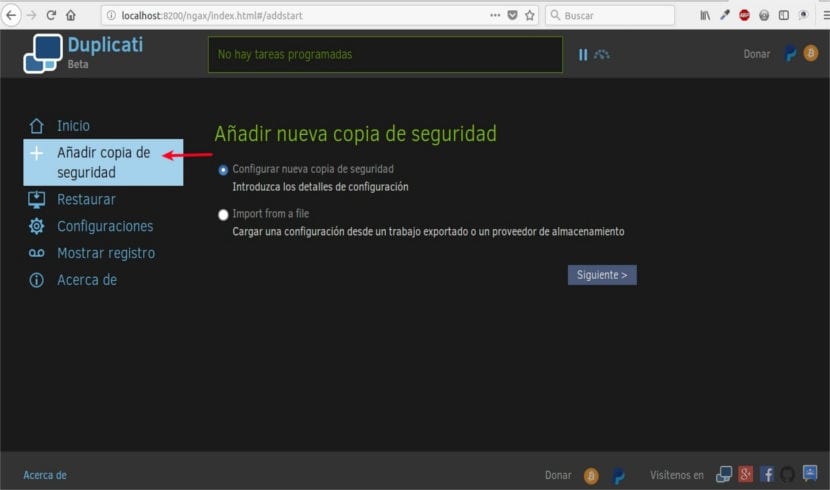
In this article we are going to take a look at Duplicati. With this open source software We can make incremental backups of systems and servers and store encrypted data in the cloud. We can choose any service in the cloud, such as Mega, Google Drive, Dropbox or a physical drive, among others to store our files. The Duplicati backup application was written and developed by Kenneth skovhede in 2008 and used the C # programming language.
With this application we can keep our data safe by keeping it away and update our backup on a regular basis. Duplicati provides a strong encryption to ensure that our data is junk for others. The application will store the backups on remote file servers and supports incremental backups, so only modified parts of the data should be transferred. This makes it easy to use a destination away from the original data.
In case we need to use the backup, the worst that can happen to us is to find that our backup is out of date. Duplicate includes a built-in scheduler, making it easy to have a regular and up-to-date backup. Also, the application will use file compression to save storage space and bandwidth.
General characteristics of Duplicati

Some general features of this backup software are:
- Is an application multi platform. It is available for the main operating systems, Gnu / Linux, Microsoft Windows, MacOS.
- Admits different web protocols for backup, i.e. WebDAV, SSH, FTP, etc.
- This app uses the AES-256 encryption to encrypt the backup data.
- Supports various cloud services to store data i.e Google Drive, Mega, Amazon Cloud Drive, etc.
- We can download your code source from the repository GitHub to customize it or to redevelop it.
- Admits different languages.
- Being a web-based application We can access the application from anywhere, even from the mobile.
Install Duplicati
In this example, I am going to install the Duplicati backup application on Ubuntu 16.04. To begin we will have to download the application's .deb package from its Official website. We can download the package from the web or we can also choose to open a terminal (Ctrl + Alt + T) and write in it:
wget https://updates.duplicati.com/beta/duplicati_2.0.2.1-1_all.deb
Once the download is finished, we are ready to install the free backup software. So let's go ahead and install by typing in the same terminal the following command:
sudo dpkg -i duplicati_2.0.2.1-1_all.deb
As you will see during the installation, the package is going to request some dependencies. To solve this problem we will only have to use the following command to download and install all the dependencies required to complete the installation:
sudo apt-get install -f
Now, to open the application we will only have to write the name of the application in the terminal (Ctrl + Alt + T) of our system:
duplicati
The previous command will directly open the user interface in the browser. We can also open the application graphically by searching for it on our computer.

Once the program is launched, we can access the Duplicati interface using the URL following in our preferred browser:
http://localhost:8200/ngax/index.html
Create a backup
When we access the URL indicated above, we will see the user interface shown in the following screenshot. The default theme is light, but I have chosen to change it to dark.

Create a backup of our data it is as simple as clicking the button "Add backup”To create a backup copy of the data we choose.

Once we start creating our backup, we will only have to follow the five steps that he will ask us the program.
Uninstall Duplicati
To uninstall the application from our system, we will only have to open a terminal (Ctrl + Alt + T). In it we will only have to write the following order:
sudo dpkg -r duplicati && sudo apt autoremove
An option that seems to be very interesting.